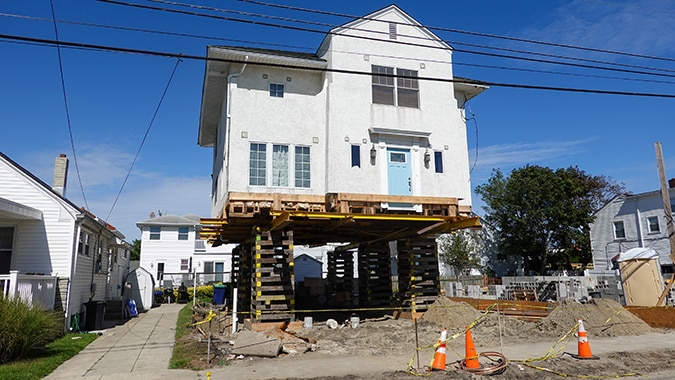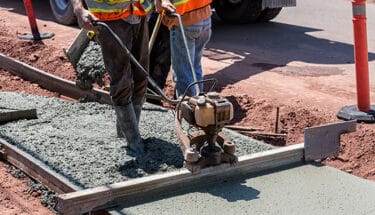On behalf of our member companies that provide 1 million jobs in New Jersey and
make NJBIA the largest statewide business association in the nation, I write to you in
strong opposition of Senate Bill 4207 which concerns apprenticeship programs of
public works contractors. This legislation will severely limit the ability of small
businesses to bid on public works contracts by stifling their ability to meet
apprenticeship program requirements.
Recent floor amendments to this legislation removed amendment language approved
by the Senate Budget and Appropriations Committee that would have provided some
relief to small businesses by exempting any contracts below the public bidding
threshold from the apprenticeship program requirement. We were disappointed with
the reversal of amendments that received bipartisan support in committee and remain
seriously concerned with the impact this bill will have on small businesses in our state.
Many of our small construction company members rely on the ability to participate in
an aggregated apprenticeship program rather than employ an actual apprentice to be in
compliance with state requirements to bid on public works contracts. These small
businesses may not be actively hiring new employees, have the capacity to facilitate a
robust apprenticeship program on their own or are sole proprietors. Without the
allowance to participate in an aggregated apprenticeship program, these businesses
will be completely shut out from public contracts, including small projects they may
typically complete for school districts or municipalities. These independent small
business contractors will effectively be cut off from a significant source of revenue
with no proper recourse. This would unfairly limit competition in the market, resulting
in higher cost projects for the state harming both the business community and
taxpayers.
Businesses have already faced barriers to entry when bidding on public works
contracts. In 2020, over 1,900 potential contractors were denied bids for public works
contracts with the majority of them losing out on a contract for failing to participate in
an apprenticeship program. If the Legislature limits the ability of a small contractor to
participate in an apprenticeship program that is accessible to them, even more
contractors will be left out of the public bidding process at a time when a robust
construction workforce is greatly needed. As federal infrastructure dollars pour into
our state in the coming years, New Jersey must be prepared to encourage more
contractors, not less, to be able to execute the many projects our state so desperately
needs.
NJBIA has been a consistent supporter and champion of apprenticeship and workforce
development programs to help meet the needs of the business community and lead to
sustainable careers for New Jerseyans. We fully recognize the importance of
apprenticeship programs to support the talent pipeline of the building trades industry.
While seeking to strengthen apprenticeship programs in our state, this legislation fails
to recognize that not every small business has the ability to facilitate an apprenticeship
at no fault of their own. This legislation fails to present proper recourse or balance for
those small businesses to allow them to continue accessing public works projects.
S-4207 also allows the Commissioner of the Department of Labor and Workforce
Development to suspend a current contractor’s certificate of registration to perform
public work while between renewal cycles for failure to comply with the new
apprenticeship program standards set forth by this bill – even if their original certificate
of registration was established prior to its enactment. A contractor would then be
required to establish compliance with the apprenticeship program requirements or wait
until the next registration certificate renewal cycle in order to maintain their public
works certification. In addition, a contractor whose certificate of registration was
suspended or revoked under the bill’s new requirements would be considered to have
a prior offense when the Department of Labor and Workforce Development
determines whether to grant them any subsequent certificates of registration. This
provision is incredibly unfair to contractors that are in compliance with current law.
Contractors would effectively be punished at no fault of their own because the
Legislature changed the rules while they were in the midst of operating under a valid
certificate of registration.
Part of this bill’s revision to Section 9 of P.L. 1999, c.238 allows a contractor to face
civil penalties and be held criminally liable if they fail to register with an
apprenticeship program. This revision may stifle contractors from even attempting to
participate in a public works project if they fear civil and criminal penalties for failing
to meet ambiguous apprenticeship registration requirements while completing a
project. Criminal penalties, including up to six months of imprisonment, for
contractors follows an unsettling trend in New Jersey of rendering unnecessarily
extreme penalties on the business community.
As our state continues to emerge from the coronavirus pandemic and prepares to
execute a number of public works projects in the coming years with federal
infrastructure money, our state and the business community must encourage expansion
of the number of eligible contractors that can bid on public work projects through the
support of the small businesses that have struggled during the pandemic. If enacted,
this bill would do exactly the opposite by removing small business contractors from
the pool of potential bidders that can complete crucial public works contracts in our
state. For these reasons, we respectfully urge you to vote no on S-4207.






